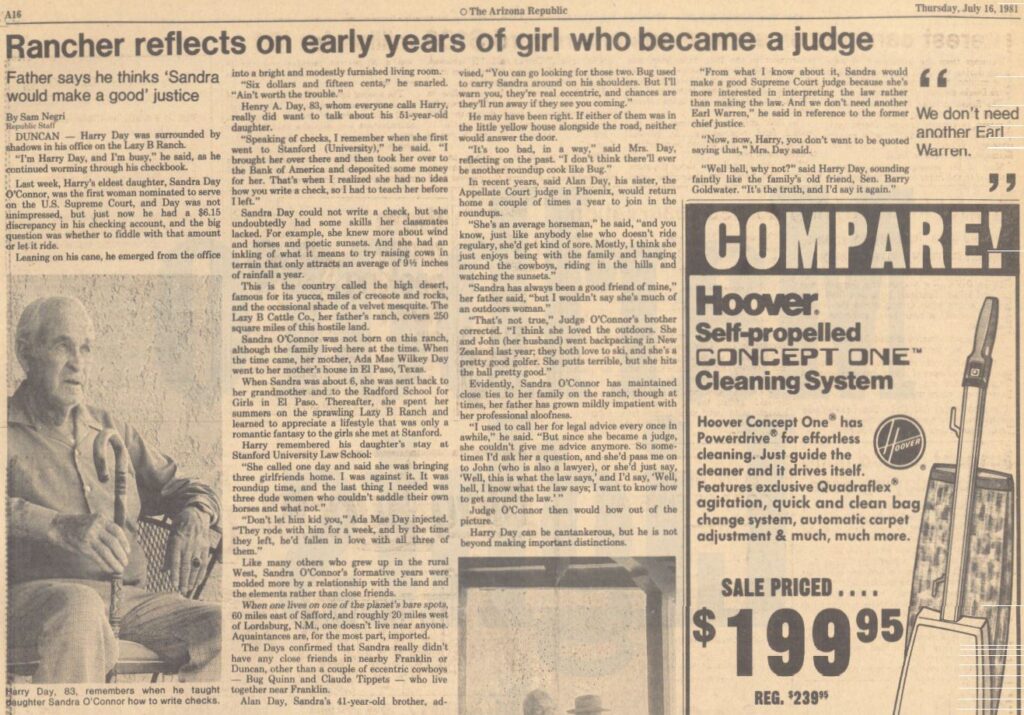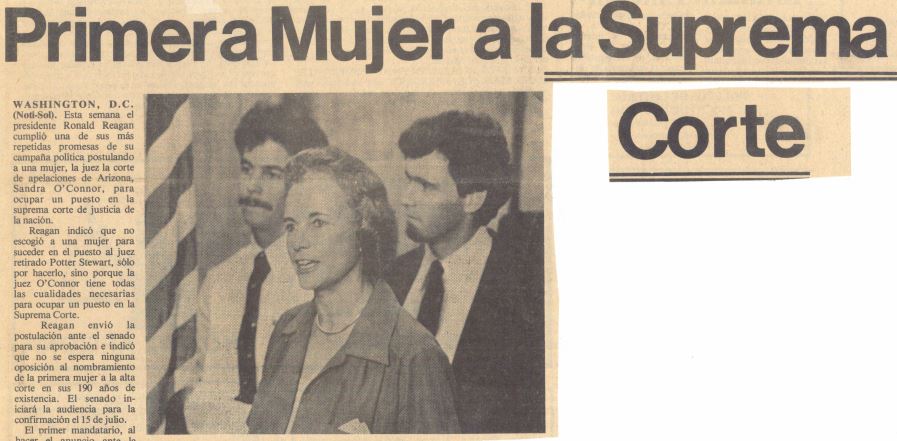Rancher reflects on early years of girl who became a judge
Father says he thinks ‘Sandra would make a good’ justice
DUNCAN – Harry Day was surrounded by shadows in his office on the Lazy B Ranch. “I’m Harry Day, and I’m busy,” he said, as he continued worming through his checkbook. Last week, Harry’s eldest daughter, Sandra Day O’Connor, was the first woman nominated to serve on the U.S. Supreme Court, and Day was not unimpressed but just now he had a $6.15 discrepancy in his checking account, and the big question was whether to fiddle with that amount or let it ride. leaning on his cane, he emerged from the office into a bright and modestly furnished living room. “Six dollars and fifteen cents,” he snarled. “Ain’t worth the trouble.” Henry A. Day, 83, whom everyone calls Harry, really did want to talk about his 51-year-old daughter.
…
Like many others who grew up in the rural West, Sandra O’Connor’s formative years were molded more by a relationship with the land and the elements rather than close friends. When one lives on one of the planet’s bare spots, 60 miles east of Safford, and roughly 20 miles west of Lordsburg, N.M., one doesn’t live near anyone. Acquaintances are, for the most part, imported.
The Days confirmed that Sandra really didn’t have any close friends in nearby Franklin or Duncan, other than a couple of eccentric cowboys – Bug Quinn and Claude Tippets – who live together near Franklin. Alan Day, Sandra’s 41-year-old brother, advised…
[Photo caption: Harry Day, 83, remembers when he taught daughter Sandra



